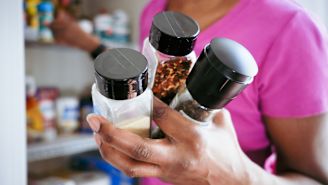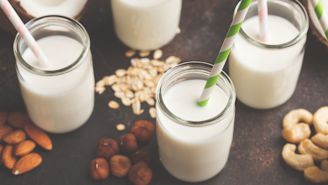Updated on January 6, 2022.
You may have heard of polyphenols, a group of healthy natural substances found in red grapes, tea, and other fruits and vegetables. Polyphenols get lots of credit for protecting the heart. But can you name any of them?
If you’re up on your health reading, you might recognize these tongue twisters: resveratrol, quercetin, and catechin. Red wine has a lot of these three polyphenols. But many foods like red grapes have them in abundance, too, without the risks of alcohol. You’ll also find these polyphenols in a less concentrated form in red grape juice. High intake of polyphenols through foods is associated with as much as a 46 percent drop in heart disease risk.
Experts have not made clear recommendations as to how much our daily polyphenol intake should be. Daily intake values are usually established to help people avoid certain kinds of malnutrition. But low polyphenol intake isn’t necessarily associated with any deficiencies. It’s just that they’re really good for your health in general.
Quercetin, catechin, and resveratrol, the polyphenols famously found in red grape products, reduce heart disease risk in several ways:
- They keep blood cells from sticking together and forming the kinds of clots that can plug up blood vessels in the heart or brain.
- They are strong antioxidants. That means they prevent damage from free radicals, a type of unstable molecule that can build up in the body and cause harm.
- They counter the kind of inflammation that makes a mess of blood vessel walls and help to improve the health of blood vessel linings.
- They may lessen the risk of heart rhythm disorders and heart failure.
Plenty of other foods besides grapes contain these heart-healthy polyphenols. For example, to get your catechins, turn to dark chocolate or berries. Snack on some peanuts for a dose of resveratrol. And quercetin is found in apples, grapefruit, onions, and black tea.
If you’re eating a wide variety of foods—especially lots of colorful fruits and vegetables—you’re probably getting enough polyphenols. Aim for five servings of vegetables and four servings of fruit daily, and you’ll very likely have your bases covered.







